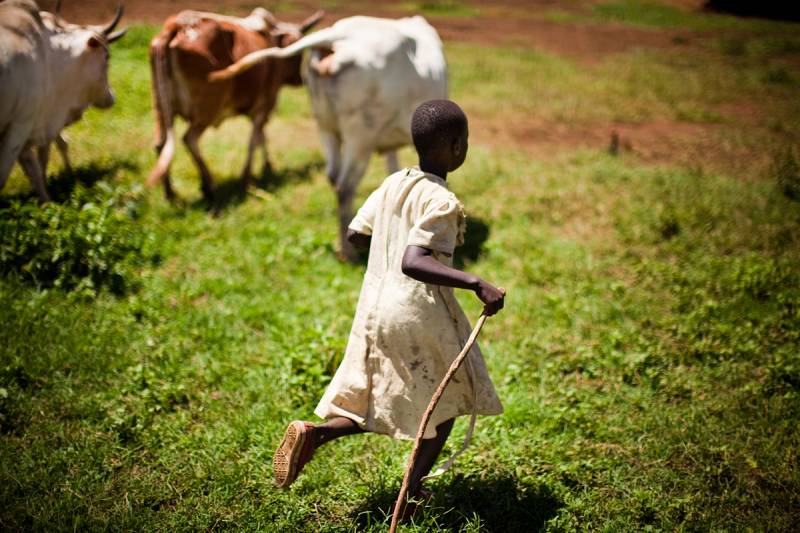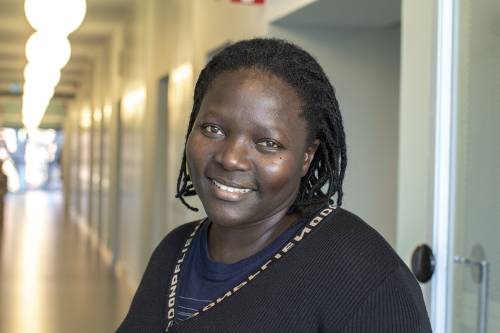Women victims when Karamojong abandon pastoralism

Photo: David Uttley, creative commons.
After a change in livelihood from livestock pastoralism to farming, the situation for Karamojong women in northeast Uganda has drastically deteriorated. According to anthropologist and NAI guest researcher Tabitha Naisiko, projects to help have shown limited results because they are aimed at women and exclude men.
The Karamojong live in Uganda along the border between Kenya and South Sudan. Traditionally, they have been pastoralists and nomads. To protect their cattle from being stolen they have always carried arms. But these have also been used to steal cattle from livestock farmers on the other side of the border.
“Stealing each other’s cattle has been a kind of game between the region's nomadic people for generations”, Naisiko points out.
However, it all changed when in the early 2002 the Ugandan government took decisive steps to disarm the Karamojong External link, opens in new window., after several previous attempts. Without weapons to protect against theft, it was not long before the Karamojong had lost large numbers of their livestock. Since then, the authorities have encouraged them to take up farming or to set up small enterprises. Women have responded positively, but men are reluctant to adapt to new livelihoods. Consequently, carrying out agricultural and household work, women’s workloads have doubled.
External link, opens in new window., after several previous attempts. Without weapons to protect against theft, it was not long before the Karamojong had lost large numbers of their livestock. Since then, the authorities have encouraged them to take up farming or to set up small enterprises. Women have responded positively, but men are reluctant to adapt to new livelihoods. Consequently, carrying out agricultural and household work, women’s workloads have doubled.

Tabitha Naisiko
“Karamojong men feel they not only lost their cattle but also their identity. Many of them suffer from cultural depression and drink alcohol as a consolation”, Naisiko notes.
“And with the men´s increased alcohol consumption, domestic violence is more prevalent in Karamoja”, she adds.
Ugandan authorities and civil society organisations have initiated various projects to improve the Karamojong women's situation, but with minimal success. According to Naisiko, one reason is that the projects have been top-down, without any cultural understanding.
“When the Karamojong were cattle herders, the men had an occupation and took responsibility for family and household. The new situation has changed their behaviour. The problem now is that men lack any role in society but have retained authority over the households. This means that the women become the biggest victims. Therefore, a successful development project also needs to consider the men's situation and include them”, Naisiko concludes.
TEXT: Johan Sävström
Karamojong
The Karamojong number about 1.5 million people. They have traditionally been nomads and pastoralists, living in clan-like communities. Around 80 percent live below the poverty line and only 10 percent are literate.
